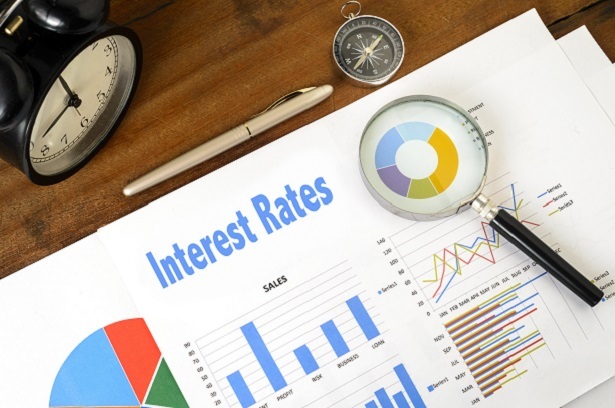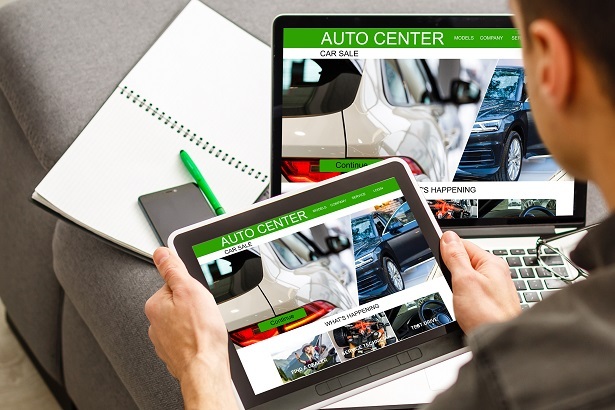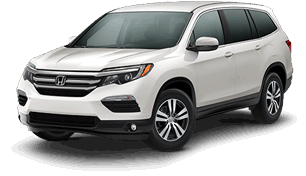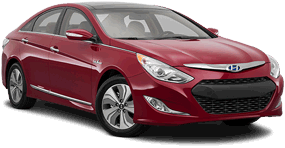It should be a done deal. You've researched and test-driven your dream vehicle and now you're sitting in the dealership's F&I office with the final paperwork in hand. The finance manager says the only thing standing between you and that shiny new car is your John Hancock, yet you worry there's another obstacle in the way. Moving ahead with a car loan that's out of your budget will cause unnecessary stress or even vehicle repossession. To prevent the worst-case scenario, you should identify what vehicle you can afford, estimate the finance costs, and understand the risks of taking on too much auto debt before setting foot in a dealership.
Set a Realistic Budget

We all have that dream car, SUV, or truck we want to see in our driveway one day, but with new car prices soaring disproportionately to the average salary, the dream car is most often not the one that will fit into the budget. There are many formulas for calculating how much you should spend on a vehicle, from 15% of your monthly take-home pay to half of your annual salary. The reality is that everyone's financial situation is different and it's best to evaluate your individual budget to determine how much car you can afford before starting to search for a vehicle.
To properly budget for a car purchase, the Consumer Financial Protection Bureau recommends tracking and adding up your monthly fixed expenses (rent, utilities, outstanding debt, etc.), additional expenses (entertainment, food, emergencies, etc.), and the added costs of owning a vehicle such as insurance, maintenance, and registration.
If you're upside down on your current car loan and are looking to trade in, you'll need to factor in the cost of paying off the difference or rolling up the debt into the new loan. Once you've tallied up all your expenses, subtract that amount from your monthly take-home pay. If the auto loan payment is higher than the total, the vehicle is too expensive.
Understand your Financing Costs

Selecting an affordable vehicle that fits into your budget is just the first step in making a responsible car purchase. How you choose to finance the vehicle is just as important as its sticker price. Paying high interest rates, especially on a long-term car loan, means handing over thousands of extra dollars to the lender.
Before applying for a car loan, you'll want to have a clear understanding of your credit score and the average interest rates that will accompany it. Obtain copies of your credit reports from the three credit agencies: Experian, TransUnion, and Equifax, look over the credit reports, and be sure to correct any errors that could be dragging down your score. Car shoppers with compromised credit will find it harder to get approved for an auto loan at a low rate and should prepare for interest rates that are 10% higher on average than car shoppers with excellent credit.
To keep your financing costs as low as possible, you should save up for a 20% down payment on a new vehicle and at least 10% on a used car. If the suggested down payment proves to be out of the budget, this is a good indication that the vehicle you're about to finance is too expensive. Another clear sign that you should look for a more affordable vehicle is if you have to take out a long-term car loan just to make the monthly payments fit into your budget.
Risks of Excessive Auto Debt

We know buying your dream car is tempting, especially if the salesperson claims there's a way to keep your payments low (usually by stretching out a car loan). Unfortunately, overspending on a vehicle leads to skyrocketing auto debt as is currently seen in the U.S. and carries risks like missed car payments, negative equity cycles, shattered credit, and vehicle repossession.
After you miss one or more car payments, your lender can report it to the credit monitoring companies which significantly hurts your credit score (sometimes by as much as 100 points). Another concern is that a habit of missing payments comes with the likelihood that your car will be repossessed which is an expensive and stressful ordeal that you should avoid at all costs.
Even if you pay on time each month, a long-term auto loan increases the chance you will be upside down on your loan. If you need to sell or trade-in the vehicle before it's paid off, you'll have one of two options: covering the difference out of pocket or rolling up the debt into a new loan which is a catalyst for a negative equity cycle.
Budget-Friendly Tips for Car Shoppers

Just because you can't afford your dream car doesn't mean you can't get a reliable vehicle that will serve you for years to come (and won't cause unnecessary anxiety). Start by following the budgeting tips from the first section. Once you determine how much you can spend on a vehicle, narrow down your list to a handful of cars you're interested in. Consider going with an affordable used car instead of brand new, and choose your auto loan carefully.
Auto Loans for New vs. Used Vehicles
According to Edmunds, the average amount financed for a new vehicle (a compact SUV) is about $27,435, with a down payment of $3,553. The average interest rate is 6.1%, which yields a monthly payment of $456. The average amount financed for a 3- or 4-year-old compact SUV is $18,792, with an average down payment of $2,354. With an interest rate of 8.7%, the monthly payment for a used vehicle is $336. Over a 6-year loan term, the out of pocket cost for a new car is $32,830 while a used car will cost $24,188 (a difference of $8,642). Going with an older used car will result in even more drastic savings.

Comparison Shop
Shopping around for the best vehicle price and the best APR rate will help keep your auto loan amount in check. Before heading to the dealership, compare used car listings from multiple car shopping sites to determine a fair value. Bring your pricing notes along when you go to test drive and purchase a vehicle to ensure that you don't overpay. Comparison shopping is also a strategy you should apply to your auto loan. To find the lowest possible rate, it's a good idea to get pre-approved by several lenders, compare the loan offers, and choose the best option.


